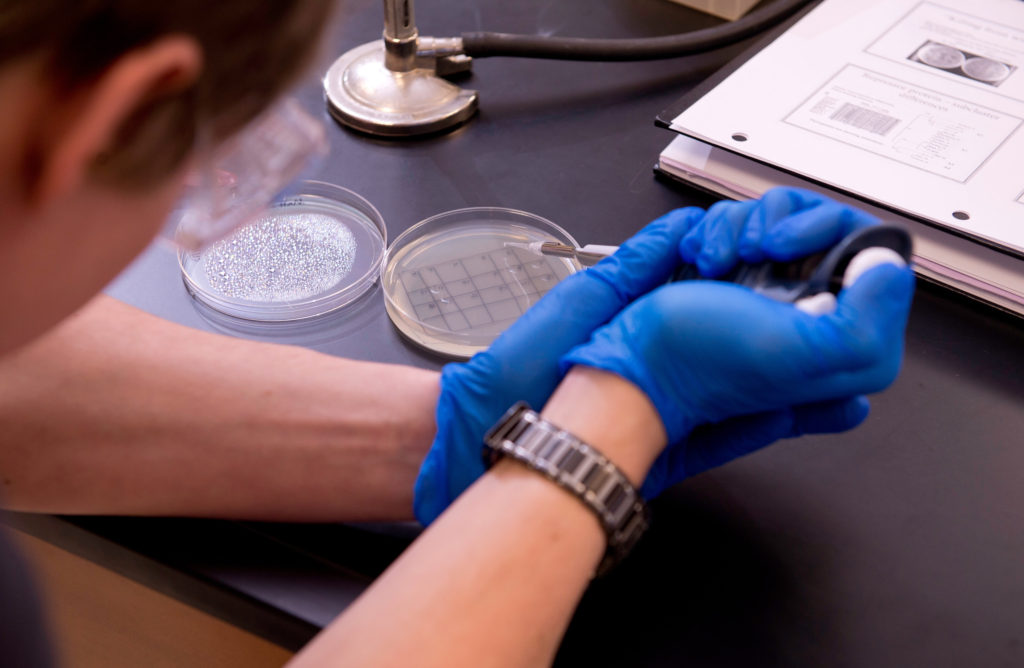The University of Wisconsin-River Falls will join 170 partner institutions from 12 nations worldwide this fall as part of the Small World Initiative (SWI) research program.
SWI is an international collaboration harnessing the power of student researchers around the world to discover new antibiotics from soil microorganisms, helping address the worldwide health crisis of antibiotic-resistant bacterial infections.
“This is a very exciting time for our biology department,” said Karen Klyczek, biology professor. “[The SWI program] will give more biology students the opportunity to make authentic contributions to science during their first year at UWRF.”
Klyczek said SWI will be offered as a lab in the university’s BIOL 160 course offering this fall. Students will bring in soil samples from a location of their choice and look for evidence of antibiotic production. They will then isolate and characterize the bacteria and the chemicals they are producing.
“The program also allows students to take part in meaningful research from day one when they step on campus,” said Tricia Davis, interim dean of UWRF’s College of Arts and Sciences. “This is a really unique opportunity for incoming freshmen to hit the ground running in terms of research.”
Soil microbes produce two key antibiotics – penicillin and vancomycin. Students are being asked to evaluate soil samples because many of the most commonly prescribed antibiotics worldwide were discovered from soil.
Worldwide, there is a diminishing supply of antibiotics to treat an increasing number of antibiotic-resistant bacterial infections. The SWI program enables students to gain hands-on research experience while addressing an important real-world problem.
Only a few new classes of antibiotics have been discovered since the 1970s, with some pharmaceutical companies stopping their searches for new antibiotics due to dwindling profit margins and long waits for federal approval.
This creates a golden opportunity for students.
“I’m really excited about bringing this program to our campus and the authentic research opportunities it will provide our freshman research initiative,” said Biology Department Chair Fred Bonilla. “The opportunity for community involvement, statewide and national collaborations, and contributions to the scientific community are very exciting. We’ve seen over the past few years offering phage and bee programs that the skills and interest students develop in scientific inquiry carry on through their curriculum here with us and beyond.”
For more information, email Davis at tricia.m.davis@uwrf.edu or call 715-425-3366.

